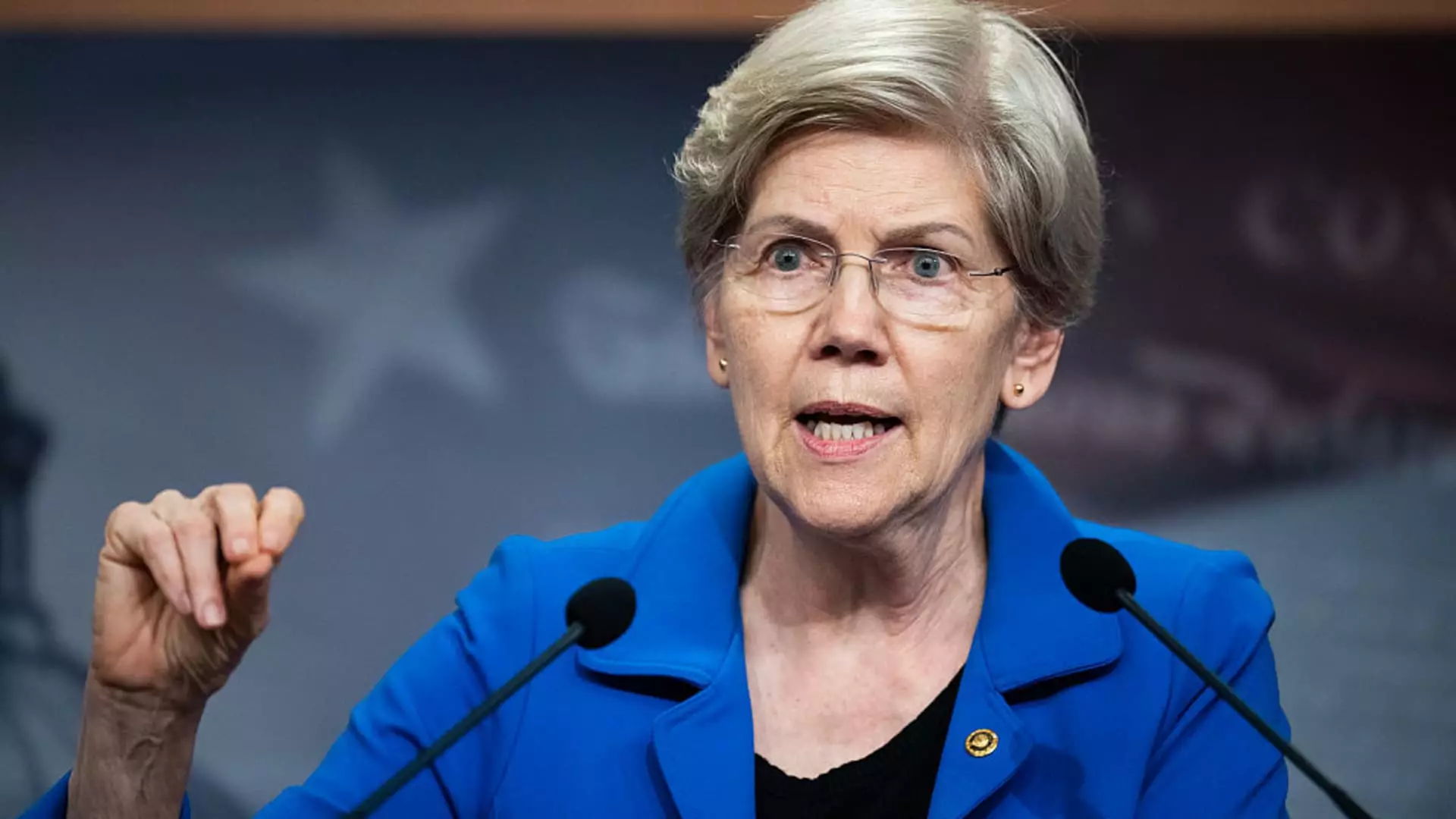The ongoing tumult surrounding President Donald Trump’s tariff policy has raised alarm bells among many congressional Democrats who fear an alarming trend: the prioritization of personal gain over public good. This potential corruption reaches far beyond politics, suggesting a systemic issue where tariffs are not merely economic tools but instead could morph into instruments of favoritism, benefiting the administration and its allies. The stakes are high, and the implications can be detrimental not only to our democracy but to the very foundations of fair trade practices.
A Letter of Concern
Recently, a coalition of 47 legislators, led by prominent figures such as Senator Elizabeth Warren and Representatives Judy Chu and Linda Sánchez, penned a poignant letter to key economic officials in Trump’s administration. This correspondence nervously highlights the possibility that the tariff policies are being manipulated for personal profit—a sentiment echoed with urgency and passion among those who signed it. These lawmakers are demanding transparency regarding how tariffs are being handled and what measures are in place to prevent their use as tools for self-advancement for both Trump and those within his inner circle.
Interestingly, the frustrations expressed in this letter only scratch the surface of a much larger concern: the growing perception of an administration that is increasingly disconnected from the moral compass it is meant to guide. As members of the minority party, Democrats find themselves limited in their capacity to enact substantial changes. However, their persistent calls for accountability reveal a sense of urgency: they recognize that safeguarding democracy may depend on uncovering potential transactional undertones embedded within tariff negotiations.
Exemptions That Raise Eyebrows
The decision to exempt certain products from Trump’s tariffs, such as smartphones, which inadvertently boosted the stocks of corporations like Apple, raises fundamental questions about favoritism. The letter references how Apple’s CEO, Tim Cook, has seemingly cultivated a special rapport with the administration, pointing to a potential quid-pro-quo dynamic that strains the line between legitimate economic policy-making and crony capitalism. The potential for tariffs to create an ‘underground market’ of exemptions for political buddies is a dangerous road that cannot be ignored.
This is particularly critical considering that while tariffs can be justified as necessary tools for protecting domestic industries, when wielded with ulterior motives, they can damage market integrity and fail the very citizens they are supposed to protect. When economic policies become entwined with personal investments, as the letter suggests, the risk of insider trading looms large, further eroding trust in those who are supposed to govern on behalf of the people.
The Path Forward
To navigate this murky landscape, it is imperative that the Trump administration clarify its tariff policies and uphold the tenets of accountability and transparency. The demand for information on potential exemptions and ties to political favor is not merely bureaucratic—it is a call to preserve the integrity of our trade system. The Democrats, while standing at a legislative disadvantage, represent the voice of millions who expect their leaders to prioritize the collective good over personal gain.
As the situation develops, it will be essential for both parties to engage in meaningful conversations that prioritize ethical governance over political favoritism. The outcome could either bolster the foundations of a fair economy or lead to a further entrenchment of corrupt practices that exemplify the worst of what politics can produce. In an era where integrity seems increasingly rare, the actions taken today will resonate for years to come.


Leave a Reply